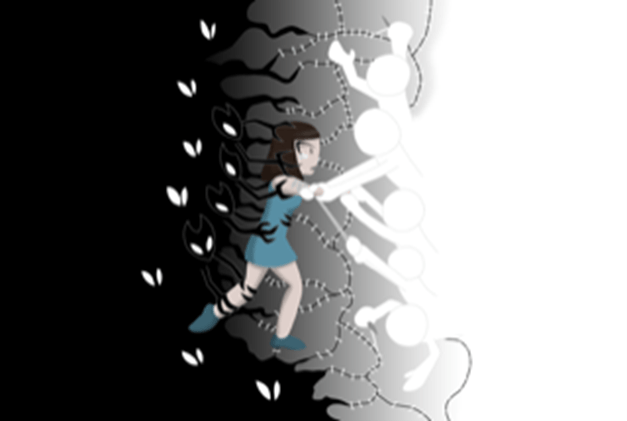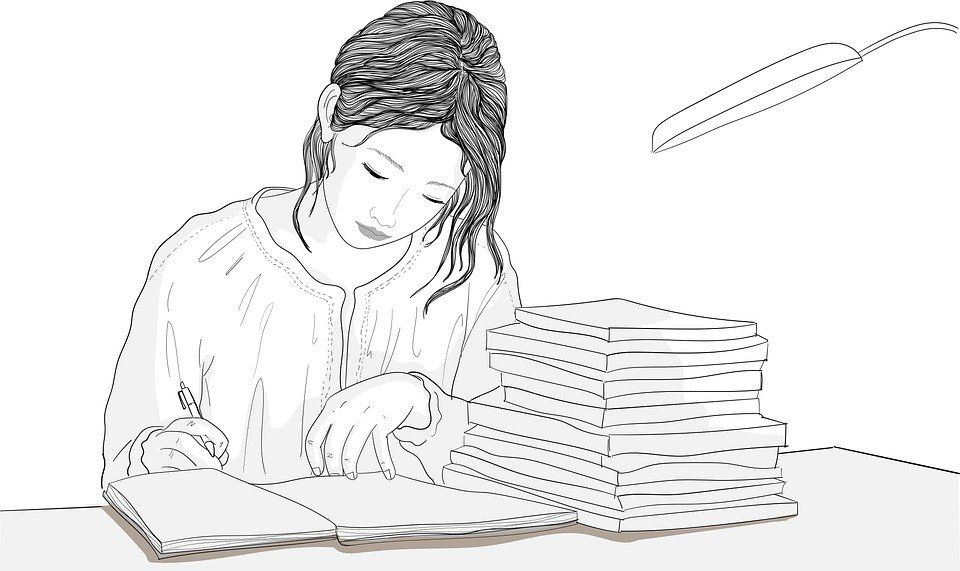My Friend.
My story is based on how one girl never gave up on me at school. She saw through my struggles, my desperation, my anxiety and my distress to help me reveal my true colours of kindness, inspiration, love and friendship.
I remember when she asked me to sit next to her in assembly, but I wouldn’t.
I remember when she asked me to join her group for lunch, but I wouldn’t.
I remember when she invited me to sit with her in the lesson, but I wouldn’t.
I remember when she smiled and waved to me, but I wouldn’t smile back.
I was unable to initiate a friendship with her due to my extreme, intense anxieties. I felt self-conscious in front of her; she was vivacious, charismatic and beautiful. Her friendship group were caring too, but as I find groups of people intimidating, I never approached them, for fear of embarrassing myself. I continually compared myself to her, I didn’t feel comfortable in my own skin. I was too timid, too afraid of the world, too socially awkward to achieve things in life. I was desperate to be friends with her; she accepted and understood me. However, the more desperate I became, the more unable I felt of speaking to her. I felt emotionally attached to her; my thoughts mostly revolved around her.
Facebook supported me in making conversation with her. She understood that I could connect with her through social media, but it was excruciatingly difficult for me to talk face-to-face. Facebook thankfully enabled me to establish a friendship with her. It took me a long time before I became confident enough to chat to her at school. When I moved to a smaller school to help me ease my anxieties and achieve my dreams, I met up with her for lunch. I felt ecstatic and proud of myself. I had achieved my ultimate dream of making a friend.
However, when a spiteful message was sent over Facebook by one of the bullies, she stuck up for me, causing her to get into trouble. This, unfortunately led to a breakdown of the friendship. When I needed her, she was always there for me, but when I wanted her friendship, she encouraged me to believe in my ability to develop new friendships. Due to the fact I was incredibly upset, disappointed and anxious, I continued to send her messages on Facebook. A year later, she blocked all contact from me on Facebook; either this was because she perceived my messages to be intrusive and she felt embarrassed because I had expressed my feelings or she just wanted me to move on.
Two years later, I still feel emotionally attached to such a caring, loving and supportive person. She has inspired me to be the best person I can be and aspire to achieve my dreams. I feel strongly that instead of defriending people because of their slight differences, you should befriend them and encourage them. If I could rewind time, I would honestly cease any opportunity to speak to her and make friends. I would have the confidence to confide in her and never be afraid to express my true feelings. It doesn’t matter if you’re autistic (which I am); all you need is one person who believes in you!
If she asked me to sit next to her, I would.
If she asked me to help her, I would.
If she invited me to spend time with her, I would.
If she smiled and waved to me, I would do so back.
Written by Lauren Smith
A Different Perspective CIC



All Rights Reserved | A Different Perspective
